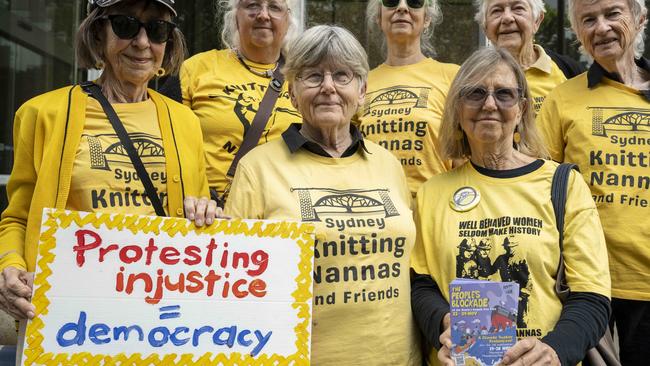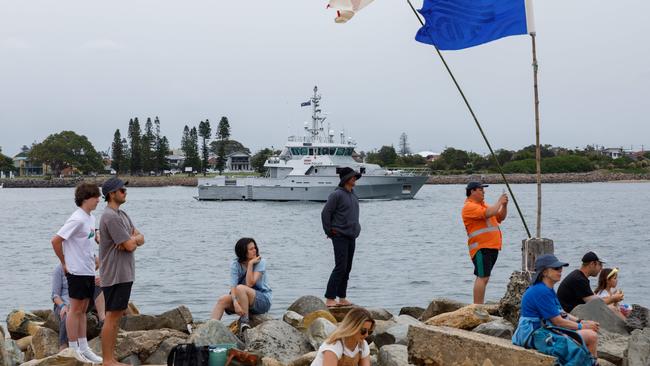NSW Police challenge Rising Tide 30-hour flotilla protest and festival at Port of Newcastle
Despite proposed changes to a large ‘profestival’ by activist group Rising Tide in Newcastle later this month, including reduced days and hours, a court has heard it is still a “highly dangerous” event.

Newcastle
Don't miss out on the headlines from Newcastle. Followed categories will be added to My News.
A new proposal for a ‘family friendly profestival’ planned by activist group Rising Tide at the world’s largest coal port would see it reduced from eight to four days and a water based ‘flotilla’ protest cut down by 20-hours.
NSW Police has mounted a legal challenge in the Supreme Court in a bid to prevent the ‘People’s Blockade’ of the Newcastle Port later this month from going ahead.
The protest group was originally seeking legal protection for a 50-hour flotilla blockade of the shipping channel and a festival on Horseshoe Beach, with live music acts including Peter Garrett, John Butler and indigenous rapper ‘Dobby’.
On Tuesday the court heard it was revised down to 30 hours and four days.
In addition, the amended proposal would ensure police access to half of the Horseshoe Beach carpark during the event.
If the water and land based activities are granted by the court, participants will be protected from being charged by police.

But despite the proposed changes, counsel representing the Commissioner of Police Lachlan Gyles SC told the court it was a protest intended to disrupt the harbour with a blockade and the group had no right for “exclusive use”.
“Free speech could occur in a different location and over a short period, done safely without substantial disruption to the people of Newcastle,” he said.
Mr Gyles added that the 30-hour ‘Flotilla’ had a strong case for a prohibition order because it was a dangerous environment with “inherently” unstable vessels, large numbers of people with varying levels of experience on the water and visibility problems during the night.
“This is a highly dangerous activity to be undertaken,” he said.
The court also heard if the water activity was prohibited, so too should the land assembly because it gives rise to “civil disobedience” and could potentially cause public disorder.

Financial implications on the port shutting down, if the event was to go ahead, were also discussed but counsel representing Rising Tide Neal Funnell argued there was no evidence those implications could be quantified.
He told the court coal ships would not be impacted by the protest and commercial carriers were likely to be foreign nationals or working for foreign companies which wouldn’t be appropriate to take into account.
Mr Funnell said making a prohibition order wouldn’t stop the protest from going ahead and inconvenience of a protest was not a “major issue”.
He said Rising Tide was not seeking exclusive use of the beach or to exclude the public, but rather to engage with community members on an important issue.
“Participants want to make a symbolic stance against the fossil fuel industry and have no interest in unlawful acts,” he said.
“People don’t want to break the law.”
The case being heard by Justice Desmond Fagan continues on Wednesday.





